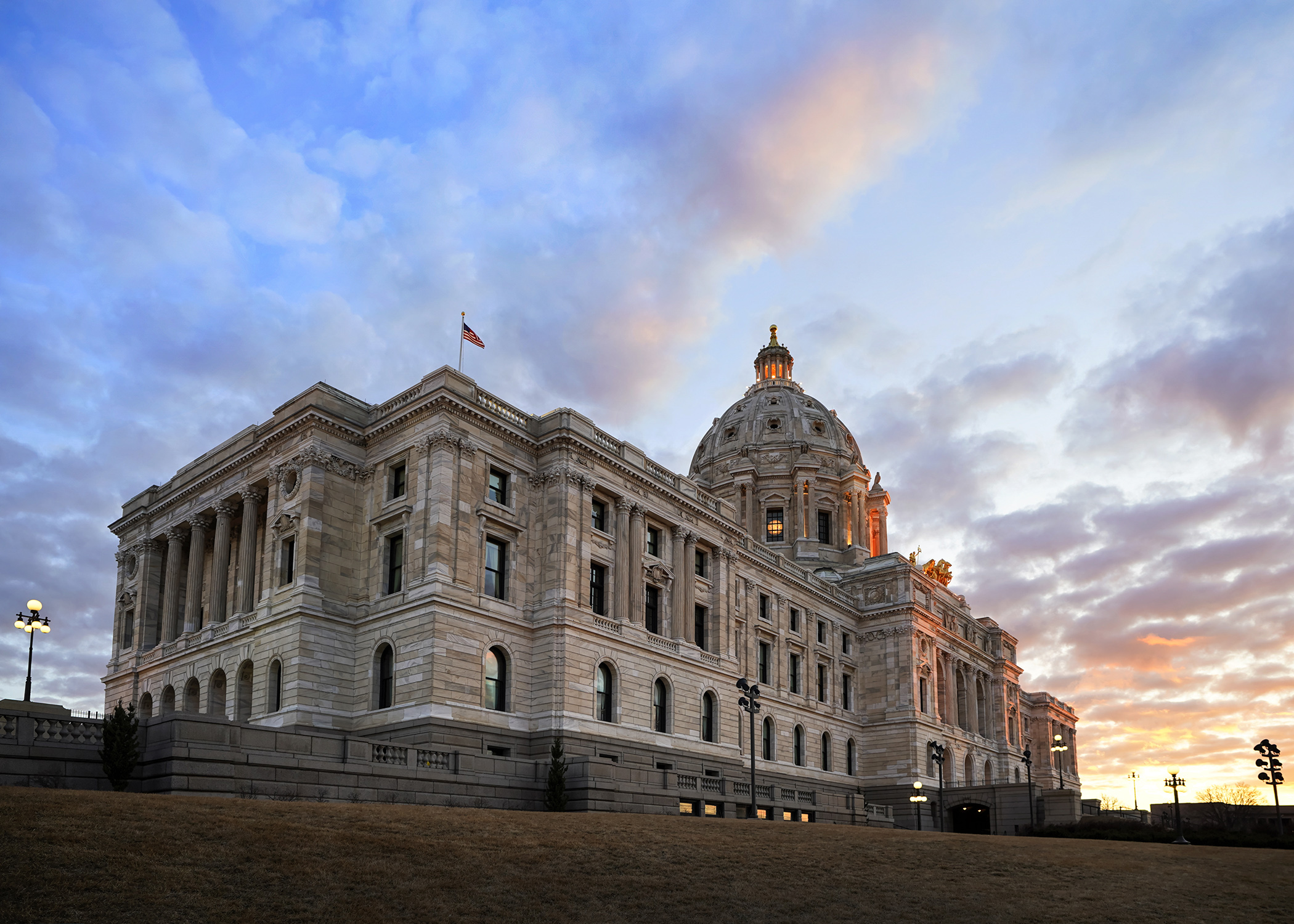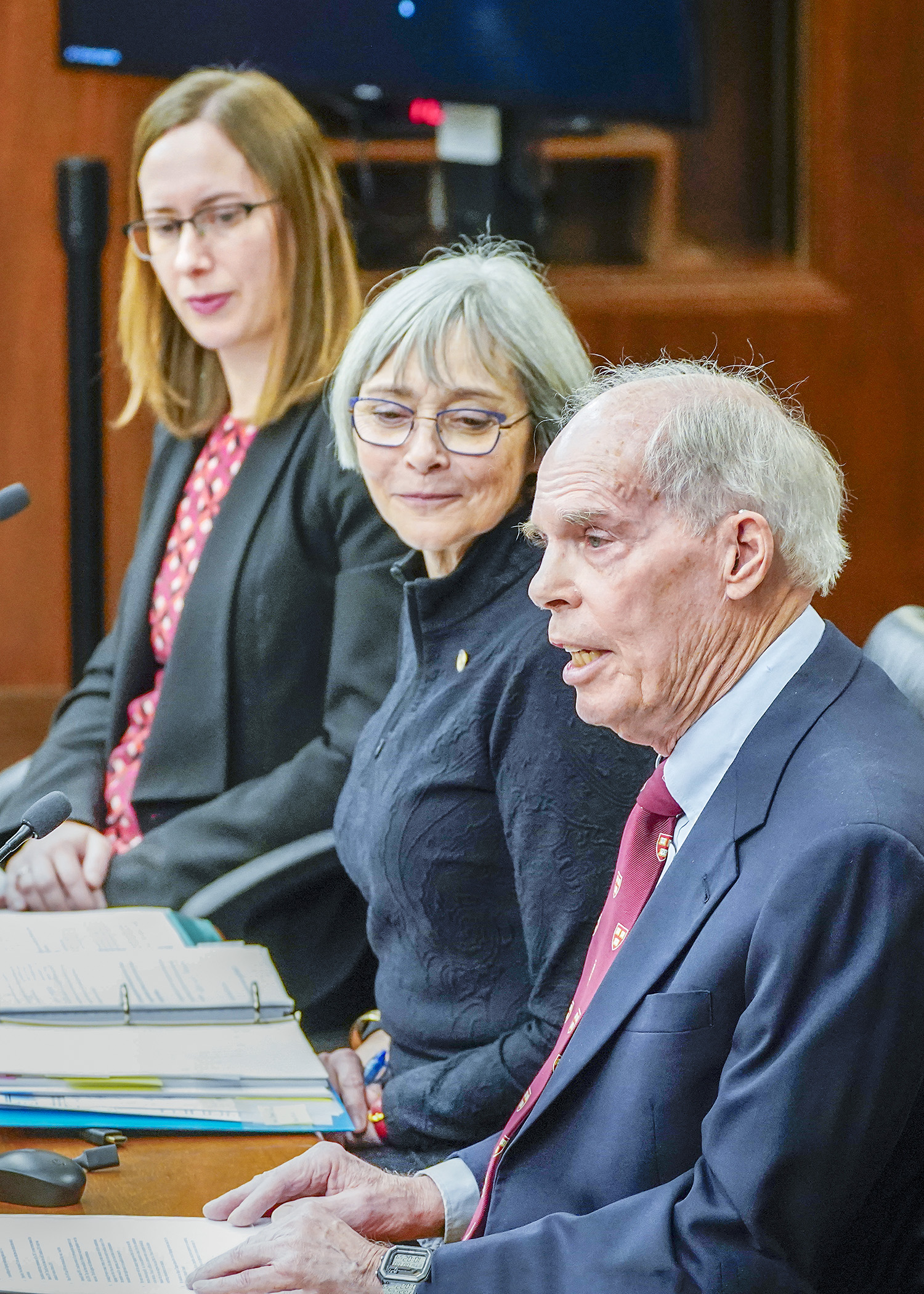Bill proposing referendum that could create full-time Legislature, redistricting commission clears second committee

A proposed three-in-one constitutional amendment cleared step two of its journey.
The House State and Local Government Finance and Policy Committee voted along party lines Thursday to send forth HF4598 that would ask voters three questions at this November’s election.
The trio of ideas would be in one question: “Shall the Minnesota Constitution be amended to require an independent redistricting commission to adopt boundaries for congressional and legislative districts following a decennial census; to prohibit members of the legislature from serving as lobbyists while in office and for a period of one year after leaving office; and to amend requirements related to the timing and process for convening regular legislative sessions?”
Approved March 13 by the House Elections Finance and Policy Committee, next up for the bill is the House Rules and Legislative Administration Committee.
Every 10 years legislative lines are redrawn following the census to reflect population shifts and ensure equal numbers of constituents per district. Legislators are charged with this task; however, lines have too often ended up instead getting drawn by the courts.
“This good government constitutional amendment stands for the basic principle that voters should choose their legislators, but legislators should not choose their voters,” said House Majority Leader Jamie Long (DFL-Mpls), the bill sponsor.
The 15-member commission would include four applicants that identify with the largest political party in the state and four identifying with the second largest. Four others must not identify with either party. Experiences and connections that would disqualify someone are included, such as a current legislator, legislative staff, someone who served as a public official within the past 10 years or a registered lobbyist.
The redistricting provision had little controversy among committee members. Limiting when a former member can serve as a lobbyist — now in House Rules but unenforceable — had even less.
But eliminating a cap on when the Legislature can meet? That’s a much different story.
Per the state constitution, the Legislature is not permitted to meet in regular session “after the first Monday following the third Saturday in May of any year.” Additionally, the number of biennial legislative days — when either the House or Senate meets in session — is capped at 120. If voters give approval, both would be eliminated.
Republicans routinely said that would create a full-time Legislature; Long calls that a mischaracterization.
“It would give us more flexibility to set our schedule, but it does not determine how our schedule is set. … If you look at other states that have the same flexibility, like Wisconsin, they are meeting fewer days in session than we are. This does not predetermine an outcome.”
Long said the proposal is a “balance of powers issue,” using as examples seven times since 1980 a governor rejecting legislative appropriations through unallotment, and the COVID-19 emergency powers laws were based on the lack of legislative trust that the governor would call members back into session which resulted in the most special sessions in state history.
 Peter Wattson, foreground, and Katina Mortensen, left, vice president of policy and partnerships for the Minnesota Council on Foundations, testify April 4 in support of a bill sponsored by Rep. Ginny Klevorn, center, to provide a citizens’ redistricting commission. (Photo by Andrew VonBank)
Peter Wattson, foreground, and Katina Mortensen, left, vice president of policy and partnerships for the Minnesota Council on Foundations, testify April 4 in support of a bill sponsored by Rep. Ginny Klevorn, center, to provide a citizens’ redistricting commission. (Photo by Andrew VonBank)Now in his 10th term, Rep. Rick Hansen (DFL-South St. Paul) said the change would help address the “rapid growth” and “massive” expansion of the number of lobbyists and special-interest groups.
“We are here to work for our districts. … We need structural reform and you’re providing it. Maybe it’s not perfect, but it is needed to bring democracy back to people in our state rather than people paid to be here.”
Across the committee table, Rep. Jim Nash (R-Waconia) calls the idea of a full-time Legislature “aspirational and misguided.”
Among concerns, he referenced last year’s nearly $20 billion biennial state budget increase in a five-month session. “Elongating the legislative session opens it up to even more and it’s a potentially frightening outcome.”
Minnesota has long been a citizen-based Legislature, something Rep. Bobbie Harder (R-Henderson) fears could change with no session limits.
“There are people who would like to serve in the Legislature but then are not able to because of their line of work,” she said, using agriculture as an example. “What will it look like in terms of the number of days and when will it be? All of spring? Is it going to be during the fall when it’s harvest time? This is a dangerous course to take when we are potentially limiting citizens of the state to run for office.”
Three questions or one
Among the seven Republican amendments rejected — all but one along party lines — one offered by Rep. Danny Nadeau (R-Rogers) might have an opening. It would separate the three concepts into individual questions to voters.
Someone may like one or two ideas but vote against everything because of a strong dislike for the third provision, said Nadeau, who acknowledged being in that camp. “Maybe we can get more done than with this than if they’re glommed together.”
Calling the three ideas “related subjects,” Long disagrees. “They are related to good government, and they are all related to government reform.”
Rep. Ginny Klevorn (DFL-Plymouth) is the committee chair. “This is an amendment I’m struggling with. I appreciate you promising to work with me as this bill moves forward on this issue.”
Redistricting commission bill No. 2
Klevorn sponsors HF4593, designed by “ordinary citizens” to create an independent citizens’ redistricting commission.
“The system’s not working because legislators are doing it, and legislators have a vested interest in their own district. We’ve become very attached to our districts. … It’s very normal for us to want to continue with that district.”
The committee is expected to vote on the bill Friday morning. Nadeau and Rep. Jim Joy (R-Hawley) expressed general support.
Long acknowledged there are many similarities between the bills. “I look forward to continuing to work together toward one consensus constitutional amendment for the ballot.”
Related Articles
Search Session Daily
Advanced Search OptionsPriority Dailies
Ways and Means Committee OKs House budget resolution
By Mike Cook Total net General Fund expenditures in the 2026-27 biennium will not exceed a hair less than $66.62 billion.
That is the budget resolution approved Tuesday by the House Ways...
Total net General Fund expenditures in the 2026-27 biennium will not exceed a hair less than $66.62 billion.
That is the budget resolution approved Tuesday by the House Ways...
Minnesota's budget outlook worsens in both near, long term
By Rob Hubbard It looks as if those calling for less state spending could get their wish, judging from Thursday’s release of the February 2025 Budget and Economic Forecast.
A state su...
It looks as if those calling for less state spending could get their wish, judging from Thursday’s release of the February 2025 Budget and Economic Forecast.
A state su...